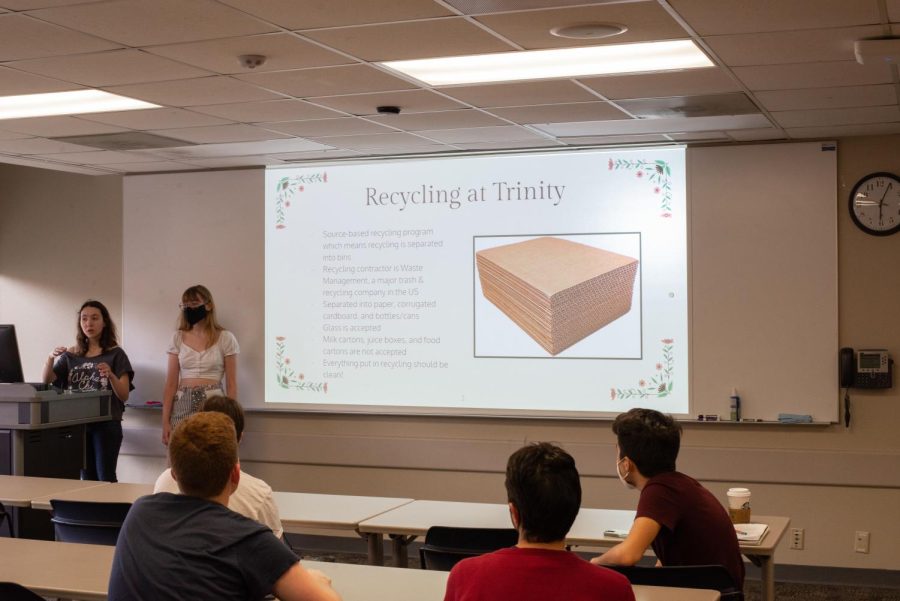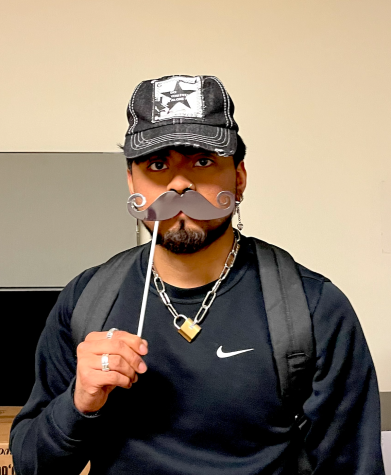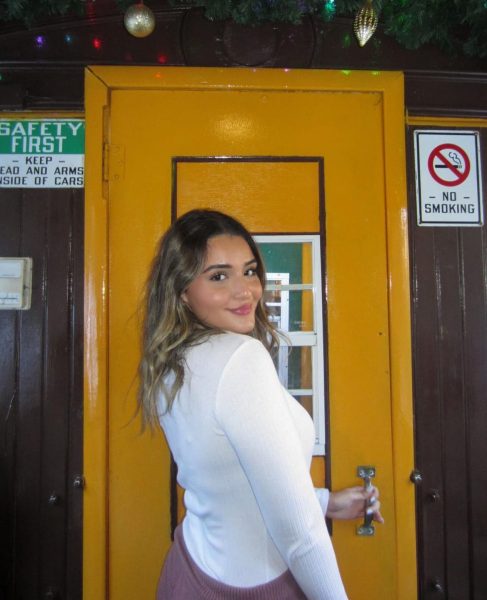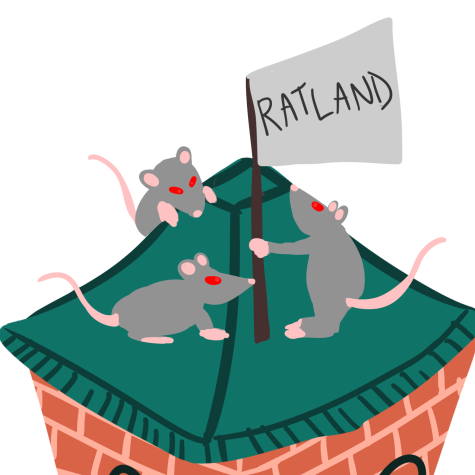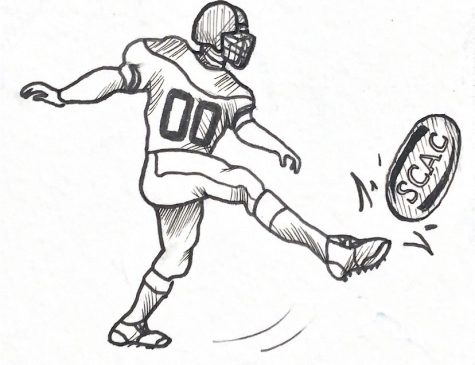Eco Allies introduces new subcommittees to address specific goals
Eco Habits, Eco Rights and Divest Trinity subcommittees focus on more narrow environmental issues
Ecoallies club, general meeting on waste management
Eco Allies, Trinity’s environmentalist club, recently updated its constitution. The main change involves the introduction of subcommittees which will allow students to focus on more specific environmental interests.
Sophomore Audrey Germany, economics and environmental studies major and geoscience minor, has been a member of Eco Allies for a year and a half. She said that she was a part of a sustainability club in high school and that she has wanted to be a steward of the environment for a while now. These changes to Eco Allies’ constitution reflect a new wave of environmental activism.
Eco Habits, one of the new subcommittees, previously functioned as its own club but was incorporated into Eco Allies a few semesters ago. When it was an independent club primarily focused on implementing sustainable practices on Trinity’s campus, it implemented the Re-Wear Closet which can be found in the basement of Coates Student Center, along with other initiatives. Now, Eco Habits functions as a space for Eco Allies members and other interested students to discuss sustainability practices, while the larger Eco Allies club focuses on more general forms of environmentalism.
Eco Rights and Divest Trinity are the two other subcommittees that were introduced this semester. Eco Rights is centered around animal and non-human liberation and equity, while Divest Trinity is made up of students advocating for Trinity to divest all investments they receive from fossil fuel companies in their endowment.
Senior Juliet Sikorski, an art and environmental studies major, is the president of Eco Allies. Sikorski said that these subcommittees allow students to focus more on things that they’re really passionate about.
“I think we were taking on a little too much as a general club [when] we tried to put on social events [and] educational discussions,” Sikorski said. “Having [these] coalitions be run and supported by club members, not specifically with everyone in the club, that kind of divides responsibility.”
Sikorski also said that these subcommittees will have separate meetings and leadership. Eco Allies plans to have representatives from each subcommittee as officer positions in the club which can directly communicate and update everyone on the actions within the subcommittees.
These new changes have been met with positive feedback as well as some pushback from members.
Sophomore Grace Magavern, biology and environmental studies major, said that she has been pushing back a little bit on some of the changes to Eco Allies. She has been a member of the club for a year and a half and said that while she is hopeful about some of the club’s changes, she thinks that others should not be a primary focus.
“Fossil fuels are still an integral part of Trinity’s campus,” Magavern said. Trinity receives research funding from fossil fuel companies and their affiliates. Some other universities divesting their funding from fossil fuel companies—such as Harvard University, Magavern said—have much larger endowments and greater footing to do so, and she believes that Trinity does not have that footing to take those steps.*
Magavern also said that she believes that there are other smaller but no less important, actions that can be taken on campus, such as not letting Starbucks give out water in venti plastic cups to encourage students to bring reusable water bottles and utilize the water stations around campus.
“Maybe I have a different idea of what I think [Eco Allies] should do in the community, but I believe that it should really be centered around what we can do and what our impact is on San Antonio […] It’s a little overwhelming to think what change we [can] do in the world,” she said.
Opinions like those of Magavern and other members are important as the changes to the club are still in the process of being implemented. Eco Allies has been a club on campus for nearly ten years and has always promoted change both within the club and throughout the Trinity community. Eco Allies always welcomes new members and meets every other week on Mondays at 6:00 p.m.
“I like to think that Eco Allies brings awareness to campus and I like that with our club, we have an active body of voices … [that is] able to tell the university to take more sustainable action,” Sikorski said.
*Correction: While Magavern mentions universities with greater endowments than Trinity University’s, it is not only educational institutions with larger endowments. For example, American University divested from fossil fuels with an endowment less than Trinity’s.
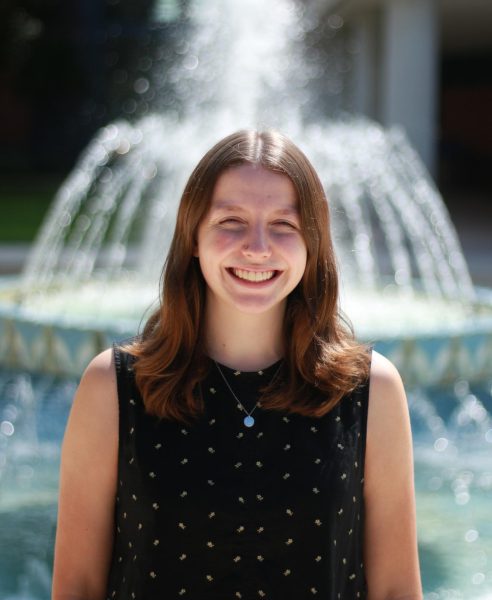
Hi! My name is Lauren Roddis (she/her/hers), and I am the Arts & Entertainment section editor! I am a junior from Spokane, WA, double majoring in Communication...
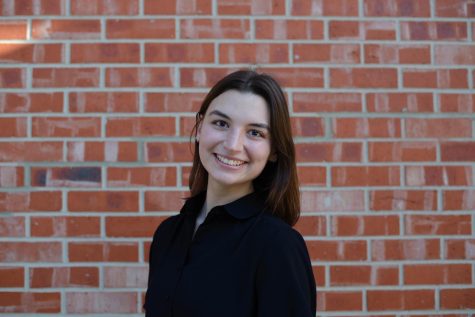
My name is Ashley Allen and I am a senior completing a BA in art history at Trinity University, with a minor in Medieval and renaissance Studies. I hope...

